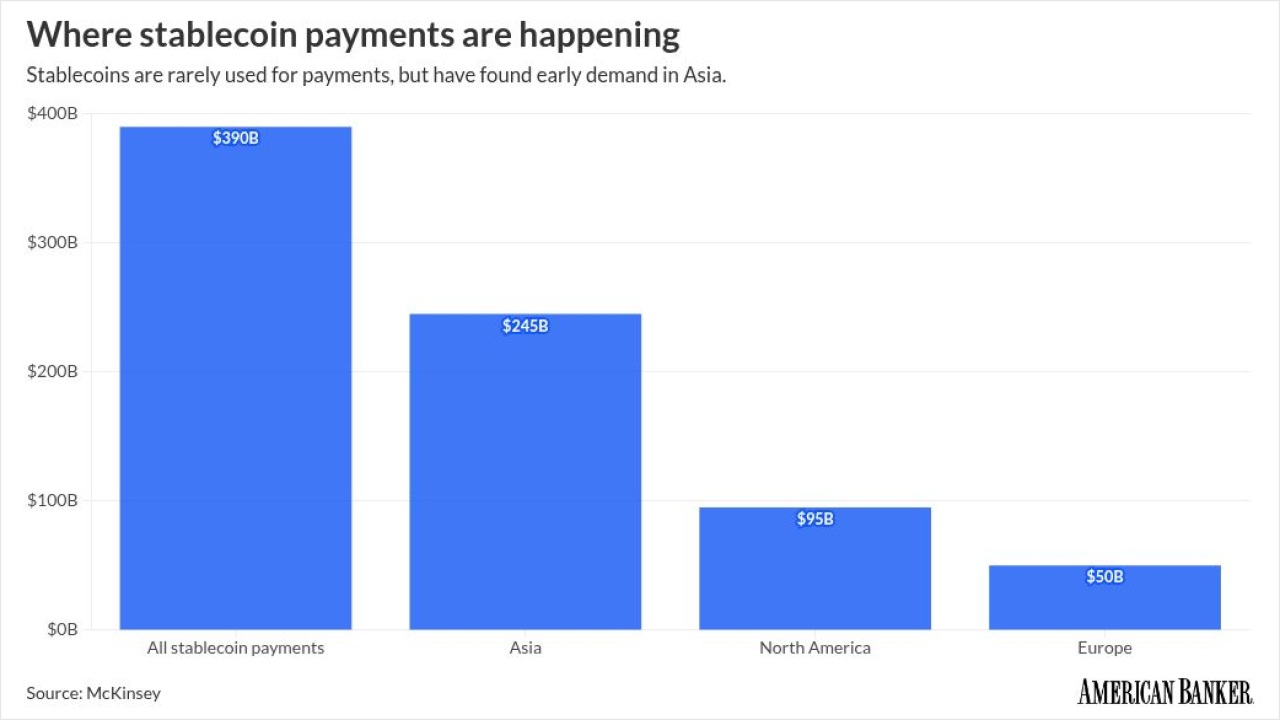While experts disagree over the severity of Internet credit card fraud, card companies seem to be making the most of people's fears by launching products designed to thwart thieves.
Capital One Financial Corp. is airing national television ads during the Olympics for "The C@rd," which it says lets people "cyberize" their credit card against fraud.
The commercials show a customer wielding a card like a shield. However, the company's Web site explains that cyberizing a Capital One card also means qualifying for features that many other companies offer: online account management, discounts at some online stores, and "100% protection against fraudulent and unauthorized charges."
American Express Co. tackled the same consumer concerns this month when it unveiled Web safety products including Private Payments, which allows customers to enter a disposable credit card number for each transaction instead of using their actual account number.
As card issuers stumble over one another to offer new safety guarantees and features for online shopping, Visa U.S.A. and MasterCard International say they are also trying to address the higher rates of fraud on the Internet.
Though credit card fraud has been hitting all-time lows in offline transactions, Visa recently started categorizing Internet transactions separately from mail order/telephone order, or MOTO transactions, the category in which they were previously included.
The card company found that Internet transactions have a higher fraud rate than MOTO transactions, which themselves show higher rates than face-to-face - or "card present" - transactions.
Credit card fraud occurs in more than 1% of Web transactions, 10 times the offline rate, according to a survey by the research firm GartnerGroup in Stamford, Conn.
Allan Trosclair, executive director of the National Coalition for the Prevention of Economic Crime, which runs the Internet Fraud Council in Richmond, Va., said there is little agreement about the extent of online fraud.
"You've got all this information floating around," said Mr. Trosclair, a former vice president of risk management for Visa U.S.A. "I mean, it can get hilarious with all the varying estimates. There are fraud counts that go anywhere from $8 billion to $800 billion."
Internet fraud seems to be concentrated in particular areas. Last year 87% of fraudulent online transactions involved auction sites, says Internet Fraud Watch, a consumer protection group whose sponsors include MasterCard International.
MasterCard says the problem is also concentrated at gambling and pornography sites. Vincent Deluca, vice president of security and risk management, said the company is counteracting fraud by securing cardholder account data from hackers and focusing on merchants in these categories.
"When you strip [those two areas] from the process, our fraud levels come out approximately the same as those at the brick-and-mortar level, which is about 8 to 9 basis points for every $100 that's charged legitimately," he said. "Other than that, we don't see these problems that we're hearing about."
Though many experts insist that typing a credit card number into a secure merchant Web site is no more dangerous than handing a card to a waiter - and though cardholders are not held liable for fraudulent Web transactions - reports of high-profile breaches seem to have fueled public fear.
Last week hackers stole 15,700 customer credit and debit card numbers from the Web site of Western Union Financial Services Corp., a subsidiary of First Data Corp., after an employee left an electronic folder unprotected. Western Union instructed about 20,000 of its online customers to cancel their cards, and the site was shut down for several days.
Phillip Curtis McKee 3d, assistant director of Internet Fraud Watch, a four-year-old project of the National Consumers League in Washington, said that despite "all the wonderful technologies" designed to safeguard online payment, consumers still perceive it as unsafe.
"People are still more comfortable with physical methods of payment," Mr. McKee said. "They trust the post office much more than a Web site. There is this fear that someone is going to reach out and grab their credit card number as it's going through the ether."
Richard Johnston, director of the National White Collar Crime Center, said this anxiety about mid-transaction theft is naive. "Have you ever heard of an account number being stolen while the data is in motion? No. The problem is housing the data, not transmitting it."
The type of wrongdoing taking place over the Internet is really nothing new, Mr. Johnston said. "It's an old fraud, but a new tool developed by the bad guys. If a merchant keeps old store receipts in a shoebox, it's the same thing."
There is "not enough reliable data" on economic crime, Mr. Johnston said. "What you'd be looking at is trend tendency. You're going to have to bounce this kind of activity against data that tracks general use."
In May the center opened the Internet Fraud Complaint Center in Morgantown, W.Va., which is sponsored jointly with the Federal Bureau of Investigation.
Mr. Trosclair said it would be misguided to draw many conclusions from the 1,000 calls the complaint center fields each week.
"You have to wonder, just how accurate is our material? You've got to judge where the data is coming from, who's collecting it, and then put your own analysis on it," he said
Credit cards are less likely than other payment instruments to get tampered with online, according to an Internet Fraud Watch report. Of the 10,660 complaints the group received last year, money orders were involved in 46% of the transactions, personal checks in 39%, and credit cards and cashier checks in 5% each.
Consumers between the ages of 30 and 49 - a demographic that should be in-the-know about their payment methods - reported the most cases of fraud, the study found.
"Level of education, gender, degree of computer savvy - none of those are a predictor of the likelihood of being victimized by a fraudulent company, and none of those are a protector," Mr. McKee said.
A GartnerGroup survey of the top 200 Internet merchants found that fraud is their primary concern, since they are liable for disputed purchases, and 93% of online transactions are done with cards.
The fees credit card companies impose for chargebacks on Web transactions are 66% higher than for non-Internet transactions, the survey found.
"Credit cards are the only game in town right now, and card companies have been in a nice position because everyone already has a card," said Kenneth Kerr, a GartnerGroup analyst who helped carry out the survey. "But if merchants stay unhappy, they are going to look for alternative solutions."
The credit card industry's share of online payments will eventually drop to 75% as alternative payment systems start to catch on, Mr. Kerr predicts. "I don't see it falling below that. People like to buy on credit. You get miles and bonus points, and you pay later for something you're not getting right away."
Mr. Johnston said the financial services community must tackle fraud on its own. "The government is just not equipped to deal with these problems. The answers are going to come from the private sector. Banking, credit cards, securities, insurance - they're the stakeholders who have to come to the surface."






